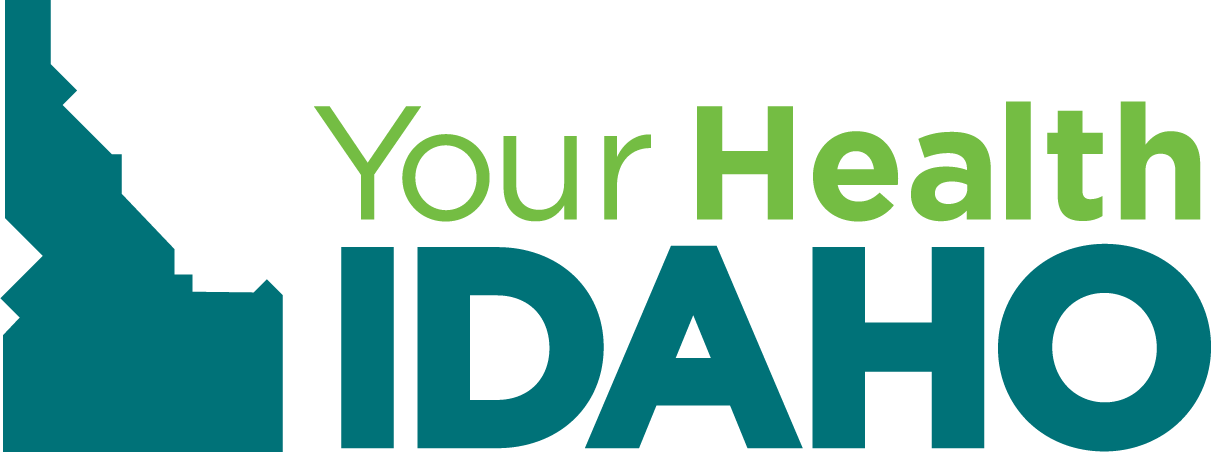EMPLOYER-SPONSORED COVERAGE
Explore Your Health Insurance Options
Unaffordable Employer-Sponsored Coverage
Low-Cost Alternatives
to COBRA
Health Reimbursement Arrangements (HRAs)

Unaffordable Employer-Sponsored Coverage
If you receive your health insurance through work (for example, a school district or county), and your employer-sponsored coverage is considered unaffordable, you may be eligible to enroll in a health plan and apply for a tax credit through Your Health Idaho.
How to Determine Affordability
For 2026, health insurance is considered unaffordable if the price of the lowest-cost health plan* offered by your employer is more than 9.96%** of your total household income.
If your coverage or your spouse’s coverage is considered unaffordable, then you and/or your family may qualify to enroll in a plan through Your Health Idaho. You might also be eligible for a tax credit, which would lower the cost of your monthly premium.
Find out if you qualify by taking a quick assessment at Affordability.YourHealthIdaho.org. After a few questions, you’ll have the answer.
Have employer-sponsored coverage? See if it’s considered affordable with our tool.
If Your Employer-Sponsored Coverage Is:
- Only affordable for you, not your family, then your family may qualify to enroll in coverage and apply for a tax credit
- Only affordable for you and your spouse, but not your dependents, your dependents may qualify to enroll and apply for a tax credit
- Unaffordable for you and your family, all of you may qualify to enroll and apply for a credit
It may end up that not everyone in your family is covered by the same insurance company, but everyone will have affordable coverage.
When Can You Enroll?
If employee coverage is found to be unaffordable, you can enroll through Your Health Idaho during Open Enrollment, which is October 15 to December 15. You’re also eligible to enroll during your employer’s Open Enrollment Period.
What is Your Health Idaho?
Your Health Idaho is the state’s online marketplace where individuals and families can shop, compare, and choose health insurance from well-known medical and dental companies.
It’s the only place Idahoans can apply for and receive a tax credit that acts as an instant discount to pay for some or all of your monthly health insurance premiums.

Workers with employer-sponsored coverage that’s considered unaffordable may be eligible for insurance plans and a tax credit through Your Health Idaho.
Insurance Plans Through Your Health Idaho
All plans offered through Your Health Idaho are required to cover ten essential health benefits:
- Doctor Visits
- Hospitalization
- Emergency Services
- Mental Health & Substance Abuse Services
- Rehabilitative & Habilitative Services
- Maternity & Newborn Care
- Laboratory Tests
- Prescription Medicine
- Preventive Wellness & Screening
- Pediatric Care
Not Sure Where to Start?
You can receive expert help from a certified broker or agent at no cost by visiting YourHealthIdaho.org/find-connector-help. You can also contact our Customer Support Center at 855-944-3246 or via chat on YourHealthIdaho.org.
For additional information, visit our Special Enrollment Period page.
What does this mean for employers?
Employers meeting all the guidelines on providing health insurance coverage to their employees don’t need to do anything. If the coverage that is offered to their employees and/or families is considered unaffordable, Your Health Idaho will confirm the premium(s) exceed 9.96%** and calculate the amount of tax credit they are eligible for. Providing information to employees about Your Health Idaho as an option for their family’s coverage is a win for everyone. Employers benefit from not contributing to dependent coverage, and employees benefit by having affordable coverage for their families, putting money back in their pockets.
*Affordability is based on an employer’s lowest-price plan, even if it is not the plan the employee and their family are enrolled in.
**This percentage is determined each year by the IRS. For 2026 plans, the percentage is 9.96%.
Low-Cost Alternatives to COBRA
If you are going through an employment transition or recently lost employer health insurance, you might be eligible for a Special Enrollment Period. Health coverage at Your Health Idaho can be a low-cost option when compared to COBRA.
Why choose coverage through Your Health Idaho instead of COBRA?
- COBRA may be expensive if your previous employer doesn’t help with premium payments or provides assistance only for a limited time.
- Your Health Idaho is the only place you can receive a tax credit to pay for some or all of your monthly health insurance premiums.
- You may also qualify for additional savings through Cost-Sharing Reductions, available on Silver Tier plans.
Review your options carefully. If you decide to enroll in COBRA, you will not be eligible for a Special Enrollment Period until your COBRA coverage ends or until Open Enrollment in the fall. If you would like more information on enrolling with a Special Enrollment Period for the loss of employer-sponsored coverage, please visit the Special Enrollment page.
If you have questions or would like additional help, contact Your Health Idaho at 855-944-3246 or visit the Find Help page to find a local certified agent whose assistance is at no cost.
Health Reimbursement Arrangements (HRAs)
A Health Reimbursement Arrangement (HRA) is an employer health benefit that provides employees with tax-free reimbursement for qualified medical expenses when enrolled in an individual health insurance plan, such as those purchased through Your Health Idaho.
Your employer may offer a Qualified Small Employer HRA (QSEHRA) or an Individual Coverage HRA (ICHRA) as an alternative to traditional group health insurance coverage. Your employer will provide you with a written notice at least 90 days before your HRA plan year starts. Make sure to keep this letter, as it contains the information required to enroll, including the type of HRA, coverage terms, the start date, and details to determine your HRA plan’s affordability.
Qualified Small Employer HRA (QSEHRA)
Small employers with less than 50 employees can offer a QSEHRA. QSEHRAs reimburse you for medical expenses, including monthly premiums, co-pays, deductibles, and other out-of-pocket costs. To qualify, you must be enrolled in minimum essential individual health insurance coverage, a requirement met by all plans offered by Your Health Idaho. QSEHRAs have a capped benefit amount set yearly by the IRS.
Individual Coverage HRA (ICHRA)
An ICHRA reimburses employees for some or all of the cost of health insurance monthly premiums for coverage they purchase on their own. There are no limits to the benefit amount, allowing your employer the flexibility to determine their contribution and the option to give a higher contribution to employees with dependents. To use ICHRA funds, you must be enrolled in minimum essential individual health insurance coverage.
When to Enroll
If your employer offers an HRA that starts on January 1, you must enroll in a plan during Your Health Idahoan’s Open Enrollment, October 15 – December 15, to ensure your coverage will begin at the same time.
If your employer offers an HRA start date other than January 1, it may be considered a Qualifying Life Event (QLE), and you would qualify for a Special Enrollment Period to enroll in coverage. The date coverage begins under the HRA plan is considered the date of your QLE.
HRA’s and the Advanced Premium Tax Credit (APTC)
If your employer offers an HRA and you want to check if you are eligible for an APTC, here are a few important things to know.
| ICHRA | QSEHRA | |
| Can I still get an Advanced Premium Tax Credit if I’m offered an HRA? | If your employer offers an HRA that makes coverage through Your Health Idaho affordable to buy, then you will not be eligible for the Advanced Premium Tax Credit. | If your employer offers an HRA that makes coverage through Your Health Idaho affordable to buy, then you will not be eligible for the Advanced Premium Tax Credit. |
| What does it mean for an HRA to be considered affordable? | Your ICHRA is considered affordable if the cost to buy the lowest-cost silver plan after applying the HRA is less than 9.02% (9.96% for 2026 plans) of your income. | Your QSEHRA is considered affordable if the cost to buy the second-lowest-cost silver plan after applying the QSEHRA is less than 9.02% (9.96% for 2026 plans) of your income. |
| What if my employer offers an HRA that is unaffordable? | You will need to decline the ICHRA to be eligible for a tax credit and would need to meet the other requirements for tax credit eligibility. | If you qualify for a tax credit, you will need to deduct your monthly QSEHRA amount from your monthly tax credit amount. |
No-Cost Help is Here for You
The health insurance process can be confusing, but you don’t have to do it alone. Your Health Idaho-certified agents and brokers
across the state are ready to help at no cost to you. To find free, expert help in your area, click here.
